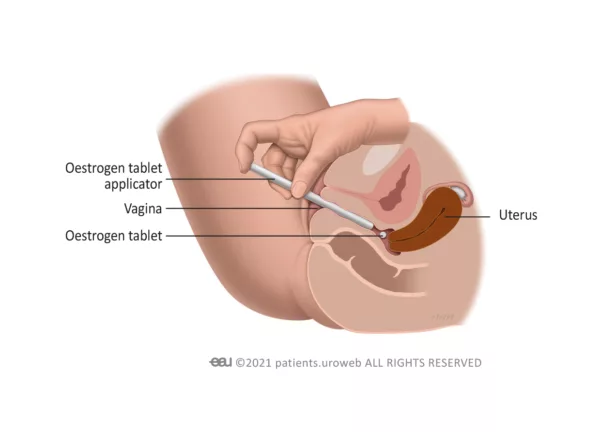Back to condition page
Drug treatment
If changing your diet, or bladder training and pelvic floor exercises haven’t worked, your doctor may suggest medication to help treat stress incontinence.
Duloxetine
Duloxetine is a medicine that can help with urine leaks in people with moderate to severe stress incontinence. It is not a cure, but it can make leaks happen less often.
Duloxetine helps make the muscle that holds in urine stronger. This muscle usually stays closed to keep urine in, but if it’s weak, urine can leak out when you cough, sneeze, or move quickly. Duloxetine helps keep the muscle closed, making leaks happen less often.
What are the side effects?
Some people who take Duloxetine for stress incontinence may have a few side effects, though not everyone will have them. These can include:
- Feeling sick (nausea) or throwing up.
- Dry mouth.
- Constipation (feeling like you can’t go to the bathroom easily).
- Feeling tired or low in energy.
- Trouble sleeping.
If any of these side effects happen, they may go away after a while. If they don’t or if they are bothering you, it’s a good idea to talk to your doctor. They can help adjust the dose to make you feel better.
Oestrogen
Oestrogen is often used to treat stress incontinence in women, especially after menopause. As women get older, their bodies naturally make less oestrogen. This can affect the bladder and urethra (the tube that carries urine from your bladder out of your body), making it harder to control when you pee and sometimes causing leaks.
Menopause is when a woman’s periods stop for good, and she can no longer have children. It usually happens between the ages of 45 and 55, but it can happen earlier or later.
Oestrogen helps more blood reach the bladder and nearby muscles, so they work better. It also keeps the tissues in the urethra and vagina strong and flexible, which can help stop leaks.
The treatment comes in the form of a vaginal cream, an oestrogen-releasing ring (called a vaginal ring) put into the vagina, or an oestrogen-releasing tablet put into the vagina.


What are the side effects?
When used correctly, vaginal cream, ring or tablet usually don’t cause side effects.
Oestrogen can be used along with other medicines to help treat urinary incontinence.
Surgery
If none of the other treatments have worked, your doctor may suggest surgery to help treat stress incontinence. The surgeries for women and men are not the same, so we have listed them separately.
This chapter contains general information about treatment options for stress urinary incontinence. It is not a substitute for professional medical advice or treatment. Always consult your doctor or healthcare provider for guidance on your individual medical situation.
Last updated: February 2025

